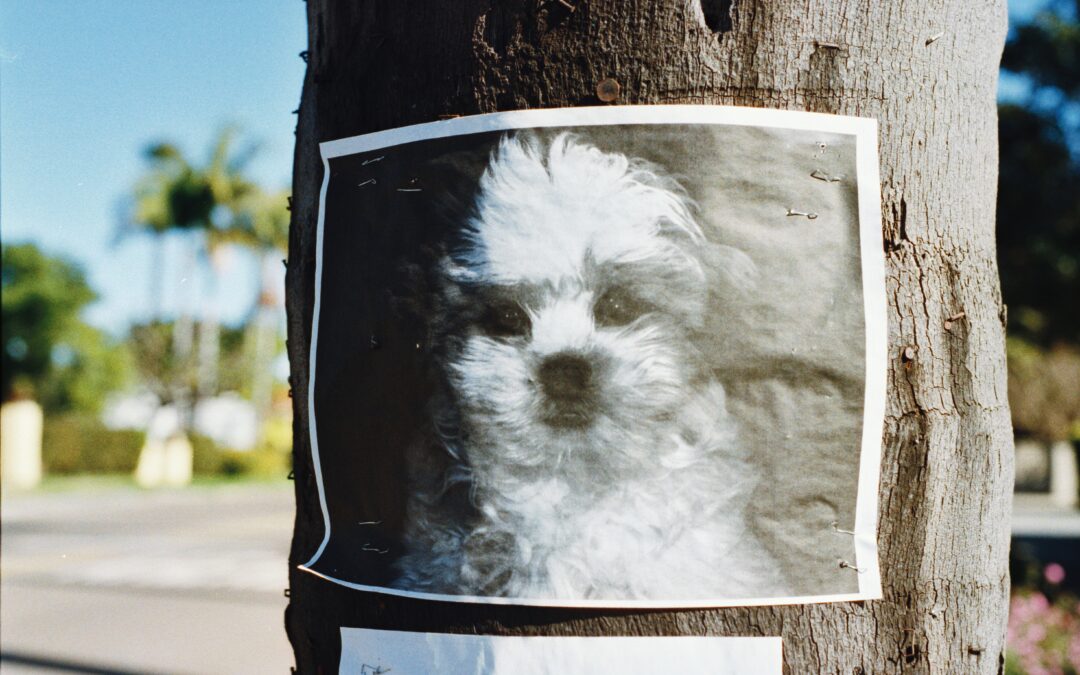Whether you’ve felt the terrifying feeling in the pit of your stomach when realising a pet may be lost before or not, we all know the importance of keeping our fur-babies protected and safe from harm.
We immunise, we reinforce fencing, we have neighbours keep an eye out while we are at work, but the thing is, pets of all kinds can and do go missing.
Let’s talk about what your first steps should be in this situation to help alleviate anxiety and maximise efficiency when searching for your much loved dog, cat, bunny or guinea pig.
Search the immediate area
This may seem obvious but when panic sets in, we can all make questionable choices. If you suspect that your curious pet has gone walkabout, try to remain calm and check your immediate surrounds. You’d be surprised how any stories we’ve heard of pups accidentally being locked away in sheds or cats being found fast asleep at the back of the closed wardrobe – animals are adventurous and can sometimes find themselves in situations you might not have anticipated! Sing out to your neighbours, check under cars and on roads, and any local parks or walking tracks your pet might be familiar with. If luck is on your side, you might just find Fido frolicking in the local bushland, having lost track of time with all the fun and excitement of getting out of the yard.
Check your microchip
If you haven’t had any luck, we suggest ringing your local vet to see if your pet has been found and delivered by a kind-hearted Samaritan (sometimes these stella human beings will return your pet home IF they are wearing a detailed collar tag). This is where is absolutely pays to microchip ALL OF YOUR PETS, and to ensure that the associated contact details are kept up to date. If you have not yet microchipped your pet, book in for an appointment at DVS today so we can maximise your chances of finding your loved one safe and sound if lost. Any good vet will contact you immediately if your pet is surrendered, and can often use their social media page to call out to the local animal-loving community to keep an eye out on your behalf.
If your pet has been picked up by an animal control ranger, they too will make every effort to reunite you with your fur-baby, so long as he/she is microchipped and registered. If this is not the case, you’ll have to contact the local shelters in your area to see if they can identify your dog or cat. You can also file a report with your local council – you’ll find the Wyndham council regularly updated Lost Animal Register link and shelters to contact here if you are a Point Cook local.
Use Social Media
Find your local ‘Lost and Found’ page for pets on Facebook and post a callout to encourage fans to be aware that your pet is missing. You’d be surprised at how quickly word can travel using this platform, and how empathetic the users can be. Be sure to include a clear, recent picture of your pet to avoid confusion or unnecessary back and forth communication. You can also post to your personal page to get family and friends on board with the search.
Leave food and bedding out
If you have still not located your pet by nightfall, some people recommend leaving a bowl of food and some warm bedding outside in case your pet can find their way back while you sleep. Many missing pets have simply lost their way or have become scared and confused within a fairly close proximity to your home, so leaving familiar scents out to guide them may be of some help. These offerings may also be a welcomed delight if your pet finds their way home in the middle of the night, cold, tired, and most probably very hungry.
While losing a pet can be a very distressing time for everyone involved, there are steps you can take to help you remain calm, with every avenue explore, while bulking your search party numbers. Always remember to microchip your pets, including your rabbits, ferrets and guinea pigs, as we can tell within moments where these little critters live and who to return them to.
If you have any questions about microchipping, would like to book in appointment to microchip your pets or need information on how to update your details, give us a call at the DVS clinic on 03 9369 1822.

